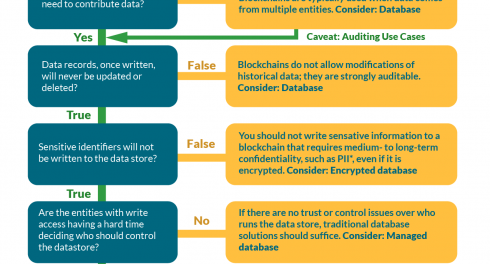Highlights:
- Dystopia alert – down the path to digital unfreedom
- Continental ball gazing
- Manna from heaven or data distraction?
- Clampdown curricula vs open inspiration
- Complexity as cover
- Where the smart monies go
- TAI spotlight: From stories for stronger societies to digital infrastructure research
In case you missed it…
Dystopia alert – down the path to digital unfreedom
 Photo: Pexels
Photo: Pexels
Larry Diamond always looks at the big picture, and now he is worried that we risk enabling a “postmodern totalitarianism.” Social media that had such potential to strengthen societal bonds has become part of the problem, enabling large scale privacy violations and aiding those spreading malign disinformation. Larry Diamond worries tech is exacerbating freedoms and contributing to our broader trust issues around the globe. We doubt Diamond will be reassured by Valerie Bauman’s vision of jobs of the future – volunteers to be “data trash engineer” or “head of machine personality design” anyone?
Elsewhere, Tim Cook is calling for US federal legislation to protect consumer data privacy – what truly serves consumers and what serves the tech industry? Can we “rein in the data brokers” as the Apple CEO demands? Is he a credible champion of protections?
Essential Listening
 Nadège Rolland, senior fellow for political and security affairs at the National Bureau of Asian Research, offers her views on the progression of China’s Belt and Road Initiative and its impact on overseas development. Listen here.
Nadège Rolland, senior fellow for political and security affairs at the National Bureau of Asian Research, offers her views on the progression of China’s Belt and Road Initiative and its impact on overseas development. Listen here.
Continental ball gazing
Wondering about Africa’s top priorities in 2019? According to Foresight Africa, the focus will be on bolstering good governance, managing debt and mobilizing resources, harnessing Africa’s youth dividend, fixing fragility, Africa’s untapped business potential, and boosting trade and investment. No biggies then… They also argue that Africa’s challenges present an opportunity to find a more strategic approach to finding solutions to these issues. Compare to Apollo Nwafor’s seven trends to watch in the continent this year. Politics and democratic governance, civic space and rising debt all make the list.
Sticking on the debt point, the leaked contract terms for a railway deal between the Chinese and Kenyan governments have set alarm bells ringing for those concerned about “debt-trap diplomacy.” Could countries cede control over their land, minerals or strategic assets when they default? The terms are similar to those seen in Chinese loans for projects everywhere from Serbia to Kyrgyzstan to Guyana. Will Doig argues such Belt Road Initiative deals show a pattern of leaders using such investments to stay in power even at the risk of compromising sovereignty and creating a “corruption bonanza.”
Maybe to avert rising debt, leaders should start reading Martin Mühleisen and Mark Flanagan’s three steps to avert a debt crisis. More loan transparency would be a good starting point and can encourage more sustainable borrowing and lending, and better creditor coordination for debt restructuring.
Manna from heaven or data distraction?
An interesting debate is shaping up on the potential of satellite data to measure development. Ran Goldblatt, Trevor Monroe, Sarah Elizabeth Antos, and Marco Hernandez argue that such data can “improve decision making, guide policy and promote better-informed governance.” Wayan Vota notes similar research harnessing satellite data to measure human development indicators but is skeptical of its application in a broader range of geographic contexts – sometimes a promising algorithm should not be expected to thrive in a context significantly different from the one it was originally developed for.
How can we increase the accessibility and availability of global aid transparency data? Ruth Levine and Joseph Asunka from Hewlett Foundation (TAI member) lay out six feasible steps to emulate for aid transparency and successful development projects, including identifying and mapping user needs, proactively marketing the data, and eliminating one-off “data calls” (easier if more funders were to publish comprehensively to IATI).
As TAI joins the International Finance Corporation in scoping barriers to use of extractives data in Colombia this week, it is good to see a real-world case of open data gaining new power when informing community action – see how students are using procurement data to fight for school repairs in Paraguay. Want more open contracting? Read up on where there are hopes for more impact around the world in 2019.
Curious to know “what works” in government? Dr Jen Gold shares insights from the UK Cabinet Office and equivalent dedicated teams in governments around the world. Although, her colleagues might want to look at what works in minimizing civil service turnover – the Institute for Government flags that as undermining government effectiveness in a new report.
Clampdown curricula vs open inspiration
In our last weekly, we highlighted the new Brazilian president’s new decree restricting the work of NGOs and INGOs. Hopefully, he won’t seek further inspiration from other regimes – Human Rights Watch’s World report 2019 notes repeated patterns of government suppression among more than 100 countries reviewed; copying of tactics to contain peaceful protesters, activists, and journalists. The latest trend – vague cybercrime laws seen across the Middle East and North Africa that censor online activity. (Want to understand all matters pertaining to internet censorship? Check out this new guide by WizCase.)
The most restrictive legal environment for civil society? Egypt holds that mantle but are there positive signs? Michele Dunne and Cassia Bardos note that the government has carried out five dialogues with more than 900 NGOs but excluded the strongest critics. Resulting proposals for amendments, such as streamlining the procedure to establish new NGOs and terminating special taxes and penalties for receiving foreign funding, may still get watered down.
Nonetheless, looking beyond the toughest cases, could 2019 see a race to free up not clamp down? Ethiopia as the first inspiration? Might the OGP Summit in May offer a venue for commitments to open up avenues for participation? Don’t be shy of proposing a session to that effect. (You have until February 6.)
Complexity as cover
This week sees Fight Inequality Alliance actions across the world from the UK to Kenya to the Philippines timed to coincide with the World Economic Forum Annual Meeting in Davos. Oxfam launched a report highlighting ways to confront this inequality, and one of the key recommendations is to introduce a wealth tax. Will heads of state and CEOs be listening? More likely the mantra of cutting taxes to stimulate investment will hold. Kimberly Amadeo demonstrates how most global corporations are using their knowledge of the US tax code to their advantage. The OECD argues that corporate tax remains a key revenue source, despite falling rates worldwide. How to make it more so? Check out their new database for a comparison of corporate tax revenue data for around 100 countries.
Last week, we noted that EU countries are tightening their anti-money laundering rules and laws. 16 years after being blacklisted, Israel has now been admitted to the Financial Action Task Force. Not all are convinced that the country has cleaned up its act. Want to dig in on the details? Read all 278 pages of the FATF country report. Elsewhere, Imdat Oner lays out how Turkey is helping Venezuela to evade US sanctions using a gold for goods scheme similar to one previously used by Iran. How far will this go before it damages U.S.-Turkey relations?
Where the smart monies go
TAI members are always looking at ways to be smarter grant makers and help give grantees the tools they need to be successful. The BUILD program of Ford Foundation (TAI member) is taking a very conscious approach and the team are confident they are seeing good results. Calling all BUILD recipients – how does experience match up?
Further inspiration – this time on innovative ways of identifying projects to fund – courtesy of Co-Impact, the collective fund of many high net worth individuals committed to driving systems-level change? Check out their first investees resulting from a painstaking selection process. While not governance-specific in their focus, it will be interesting to anticipate governance challenges these grantees will face as they scale and what learnings might help.
Going beyond project identification – how to identify key resources and questions throughout the lifecycle of your collective impact effort? Tamarack Institute has a compendium with all the resources you need. Check it out.
Long read of the week:

A Savage Order: How the World’s Deadliest Countries Can Forge a Path to Security by Rachel Kleinfeld
In predicting a middle acceptable conflict mitigation, Kleinfeld suggests incorporating opposing ideas, players and circumstances that could cure the emergence of privileged violence, thereby elevating from savage order to mutual coexistence.
TAI spotlight
Stories for stronger societies | Luminate Group
Luminate explains their investment in the Sundance Institute | Luminate Fund will support inspirational filmmakers engaging the public and influence key social narratives.
How the US can support Armenia’s fledgling democracy | Open Society Foundation
Tatevik Khachatryan outlines ways the US can help Armenia in its journey to a sustainable democracy.
UK aid support in corrupt countries | DFID
DFID spokesperson clarifies that they do not give UK aid directly to the governments of most corrupt countries.
Digital infrastructure research | Ford Foundation
Michael Brennan summarises $1.3M research grants from the Ford and Sloan foundations that focus on the sustainability and maintainability of open source digital infrastructure.
Calls: Proposals, papers, speakers and course invites
- Co-Create the 6th OGP Global Summit Agenda – February 6
- New Media Ventures 2019 open call – February 11
- OECD and OGP Call for Innovative Open Government Cases – February 12
On the calendar
- Effectively Engaging People with Disabilities – January 23, 2019
- The Role of Tax Morale in Development – January 25, 2019 (Paris, France)
- ACM FAT* – 2nd conference on fairness, accountability, transparency dimensions of machine learning and AI – January 29-31(Atlanta, GA)
- Resilient Democracy – a strong and diverse civil society – Feb 6, 2019 (Brussels, Belgium)
- Data on Purpose Conference – February 19-20 (Stanford, CA)
- Story Movements 2019 – March 1 – 2, 2019 (Washington, DC)
- Open Data Day – March 2, 2019
- The Surprising Power of Liberating Structures – March 11 – 12, 2019 (Seattle, Washington)
- Open Gov Week – March 11 -17, 2019
- The Liberating Structures global gathering – March 13 -15, 2019 (Seattle, Washington, USA)
- TICTec Research Conference – March 19-20, 2019 (Paris, France)
- OECD Global Anti-Corruption and Integrity Forum – March 20-21 (Paris, France)
- The CEP Conference – May 7-9, 2019 (Minneapolis, USA)
- Csv, conf, v4 – May 8-9, 2019 (Eliot Centre, Portland)
- Collective Impact Forum Convening – May 14-16, 2019 (Chicago, USA)
- 2019 Open Government Partnership Global Summit – May 29-31, 2019 (Ottawa, Canada)
- RightsCon Tunis – June 11-14, 2019 (Tunis, Tunisia)
- Global Conference on Transparency Research – June 26 – 27, 2019 (Rio de Janeiro, Brazil)
- Tax Justice Network Conference 2019 – July 2 -3, 2019 (City, University of London, UK)
- Global Symposium (COPGS) on Citizenship, Governance, and Accountability in Health – October 15-18, 2019 (New Delhi, India)

